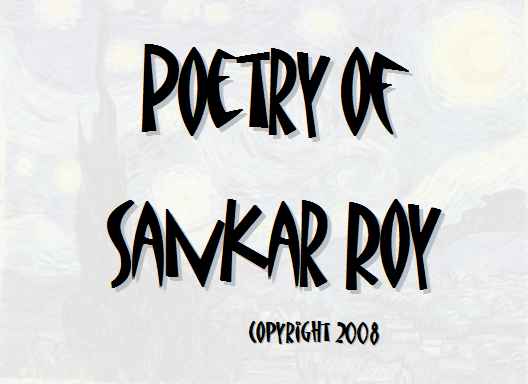
Lost |
|
|
Delta |
|
|
Diagnosis |

Lost |
|
|
Delta |
|
|
Diagnosis |
|
Copyright 2008, Sankar Roy. © This work is protected under the U.S. copyright laws. It may not be reproduced, reprinted, reused, or altered without the expressed written permission of the author. |
|
Sankar Roy, originally from India, is a poet, translator, activist and multimedia artist living near Pittsburgh, PA. He is a winner of PEN USA Emerging Voices, author of three chapbooks of poetry– Moon Country, The House My Father Could Not Build and Mantra of the Born-free (all from Pudding House). He is an associate editor of international poetry anthology, Only the Sea Keeps: Poetry of the Tsunami (Rupa Publication, India and Bayeux Arts, Canada). Sankar's poems have appeared or forthcoming in over fifty literary journals including Bitter Oleander, Crab Orchard Review, Connecticut Review, Harpur Palate, Icon, Runes, Rhino, Tampa Review and Poetry Magazine. |